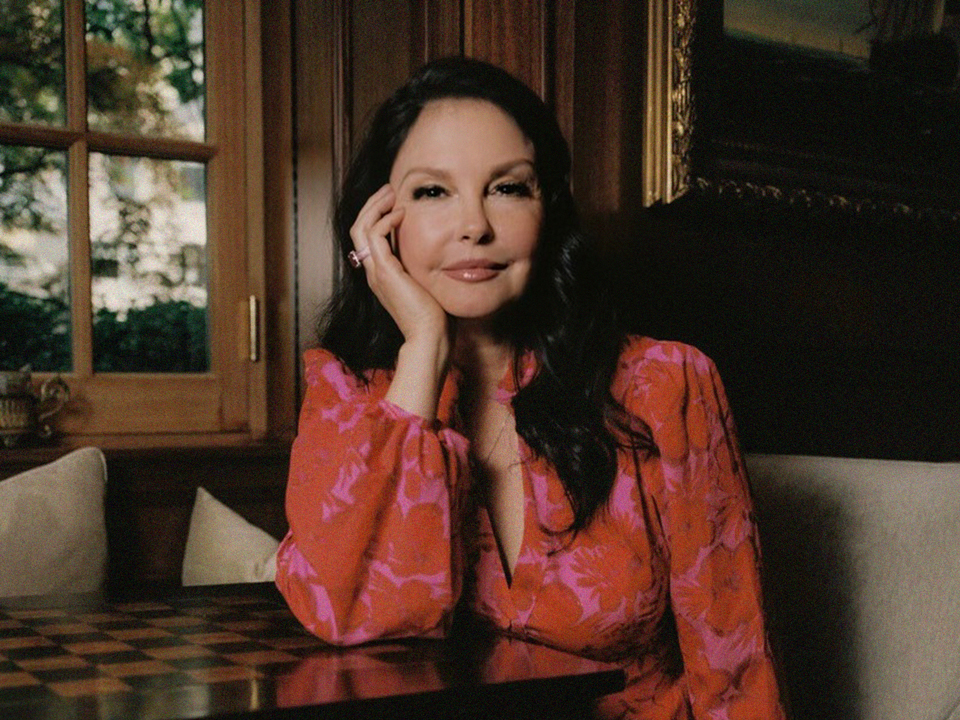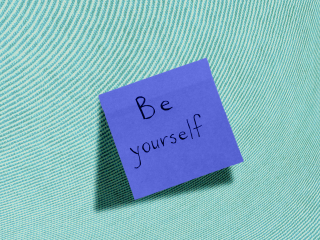Ashley Judd on Healing From Grief and Trauma
The actor talks suicide prevention and coping with the latest Harvey Weinstein news.
On April 30, 2022, Ashley Judd found her mom, country singer Naomi Judd, and was there in her final moments before she died by suicide. In the years since, the longtime actor and social justice advocate has continued destigmatizing mental health, shared more about her personal challenges, and, most recently, teamed up with the Biden-Harris Administration to roll out the National Strategy for Suicide Prevention. Developed alongside organizations like the Substance Abuse and Mental Health Services Administration and the National Action Alliance for Suicide Prevention, the three-year plan includes 200 actions to address the prevalence of suicide in America and mental health crises in at-risk populations.
In an April 23 White House panel with the U.S. Surgeon General Vivek H. Murthy, Judd shared, “[My mom] lived most of her life with an untreated and undiagnosed mental illness that lied to her and stole from her, and it stole from our family, and she deserved better. I'm also here because I was molested by a man—for the first time that I remember—when I was 7 years old, and that's when I had the onset of childhood depression.” She continued, “I know the feeling of not wanting to be here, but I had a different experience because I went to treatment in 2006 for unresolved childhood grief and sexual trauma. I've been in good recovery for 18 years, and I've had a different outcome than my mother, and I carry a message of hope and recovery.”
Two days after the White House event, Judd’s day was interrupted with the news that Harvey Weinstein’s 2020 sexual assault conviction (which resulted in a 23-year prison sentence) was overturned by the New York Court of Appeals. A quick #MeToo movement refresher: In 2017, Judd was among the first actors to publicly accuse the former film producer of sexual harassment, bringing the #MeToo movement, which dates back to Tarana Burke in 2006, to the forefront. In 2018, Judd sued Weinstein, saying he purposely sabotaged her career after she rejected his advances. (Weinstein maintains that he is not guilty.)
Here, Judd shares more of what’s on her mind as the second anniversary of her mother’s death approaches, the Weinstein news garners intense backlash, and the Biden-Harris plan rolls out.
WM: How are you doing lately, considering everything that’s going on in your world right now?
Ashley Judd: Intellectually, I feel really robust. I've had a lot of thoughts and insights. For example, I've been thunderstruck at the realization that male sexual violence is a thief. Since the announcement that Harvey Weinstein's conviction for rape in New York has been overturned, it has really stolen my time. For example, we had to reschedule this interview because I was responding to this institutional betrayal and going on CBS morning news with Jodi Kantor. Then I went bigger and [thought], So much of my life is defined by the principle of freeing women from male sexual harm. What else would I have done with my life if there was no male sexual violence?
From a feeling perspective, I'm not feeling as much because I'm very much in the idea sphere right now. I [do] feel very connected to my community, so that's a place where I'm really feeling a lot of joy. I'm staying with a great friend, and a great friend Amber Tamblyn just came over and we had an hour together. My partner and my bonus daughter were here for the weekend, and I saw New York from perspectives I've never enjoyed. They're Swiss and had all these ideas that have never occurred to me.
It's my mom's anniversary [on Tuesday], and I'm feeling very sensitive toward myself and self-caring towards myself. So there's a lot going on there.
WM: This week you are also helping to advocate for the Biden-Harris National Strategy for Suicide Prevention. What points in the strategy are you most excited about?
AJ: What I particularly appreciate is the emphatic inclusion of equity and how they literally baked it into every line. And [Shelby R. Rowe], the Chickasaw woman who was on the panel with me, was invited to review all of the language to specifically ensure that all folks' mental health was addressed. Suicide disproportionately affects different groups, and everyone deserves to have good mental health and equal access to resources.
WM: One of the other goals involves expanding support for people who have lost someone to suicide. What do you think would've been helpful for you and your family following your mom's passing?
AJ: I think it's very prudent, wise, and compassionate that postvention is a part of the action plan. I was fortunate because I was already pretty grief- and trauma- literate when Mom died. I knew the difference, for example, between trauma and grief because of my work both on recovering from unresolved childhood grief and sexual trauma, and because of my international feminist social justice humanitarian work. So I had a leg up, and I knew, for example, that I had to address my trauma before I could actually start the organic grieving process.
But a lot of people are bewildered and crushed by their trauma and their grief. And these tools and supports will allow people to believe that they have a right to be happy. They're not betraying their loved one if they live a good life, and the maelstrom of emotions that they feel are natural and appropriate and they do go through stages. It can be so helpful to have a perspective and go, Oh, the bargaining stage, that's what's happening right now. And oh my gosh, I'm in shock. That's why I'm having this iterative, intrusive memory. It's shock. Just to get that little bit of space and have that perspective makes all the difference between feeling crushed and paralyzed and being able to reach out for some support and community.
WM: How has your grief journey morphed over the last couple years?
AJ: I knew that I was holding the complexity of both trauma and grief and that being the one who found Mom was a blow to my brain and an insult to my neurobiology. It was also a precious gift because I had the blessing of walking her home. She was breathed into the infinite mercy of God. And to be able to live in the blessing and the honor of midwifing her, I first had to give my brain the opportunity to resolve the trauma.
I started doing work on the trauma within days, and I vomited during my first piece of work. It was like, in the cells of my body. It was in the tissues of my muscles. And that fall, I did an intensive series of EMDR [eye movement desensitization and reprocessing]. … I did two sessions a week for three months; I really leaned hard into that experience.
When the trauma was resolved, I noticed that then I started the natural grieving process, which was the observable stages. And now I feel this mirth and delight when I think about mom kicking around in the mystery. She was so fascinated by the cosmos and neuroscience and what happens in the universe, and now she knows.
WM: You've been open about getting treatment in 2006 for your mental health. What's something that gave you hope and made you want to keep going even in your darkest times?
AJ: I felt better. I think I came for relief, and then I got recovery and thriving. That's an enormous incentive.
WM: What message would you like to share with anyone who has been impacted by suicide or suicidal ideation?
AJ: It's helpful to talk about it. There are many of us who understand and identify, and we just listened to this the other night. My experience, taken from the James Taylor song “Shower the People,” is when I tell someone the way that I feel, I can feel it beginning to ease. The disease of mental illness, it's been helpful for me to think of it as a thief and a liar. It creates distorted thinking, and it lies to me. In its most convincing darkness, it whispers, “It will never get any better than this.” If I can have this tiny sliver of memory that this is a disease—it's not me—it's a disease that is lying to me, I create a beat where I can reach out to someone. [I can] share the way that I'm feeling, and they will help me, text 988, or give me a little bit of support that will help me reach for a tool.
WM: What else would you like to leave readers with?
AJ: I love the quote from my daily reader today. A truth I really stand by is that the trauma I don't transform is trauma I will transfer, and I can't transmit what I do not have. So the most radical thing I can do for the world is to take care of myself. And I really appreciated the way this reading put it: “Being true to myself is one of the greatest gifts I can give to those around me.”
This interview has been edited and condensed for length and clarity.
Wondermind does not provide medical advice, diagnosis, or treatment. Any information published on this website or by this brand is not intended as a replacement for medical advice. Always consult a qualified health or mental health professional with any questions or concerns about your mental health.




